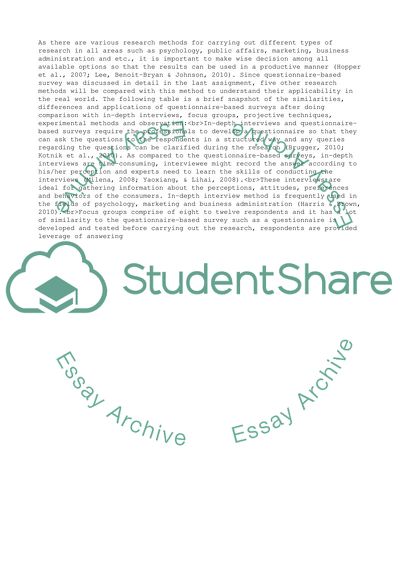Cite this document
(“Compare and Contrast Research Methods Paper Example | Topics and Well Written Essays - 1250 words”, n.d.)
Compare and Contrast Research Methods Paper Example | Topics and Well Written Essays - 1250 words. Retrieved from https://studentshare.org/business/1608359-compare-and-contrast-research-methods
Compare and Contrast Research Methods Paper Example | Topics and Well Written Essays - 1250 words. Retrieved from https://studentshare.org/business/1608359-compare-and-contrast-research-methods
(Compare and Contrast Research Methods Paper Example | Topics and Well Written Essays - 1250 Words)
Compare and Contrast Research Methods Paper Example | Topics and Well Written Essays - 1250 Words. https://studentshare.org/business/1608359-compare-and-contrast-research-methods.
Compare and Contrast Research Methods Paper Example | Topics and Well Written Essays - 1250 Words. https://studentshare.org/business/1608359-compare-and-contrast-research-methods.
“Compare and Contrast Research Methods Paper Example | Topics and Well Written Essays - 1250 Words”, n.d. https://studentshare.org/business/1608359-compare-and-contrast-research-methods.


